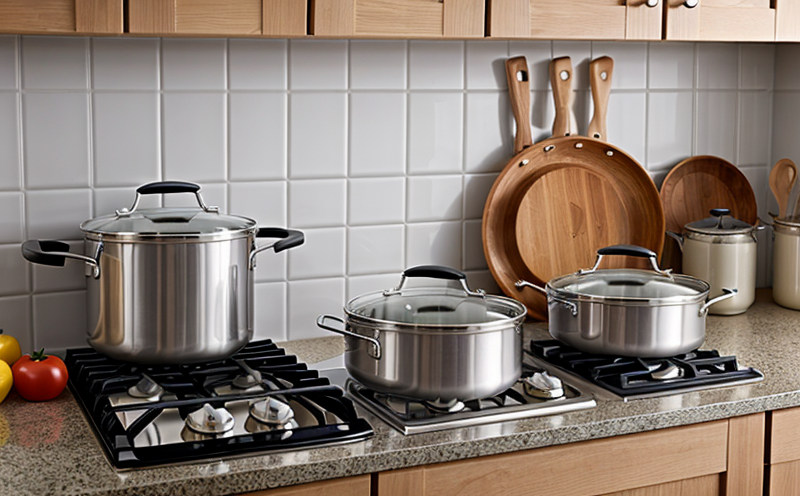Compostability Testing of Biodegradable Kitchenware
The increasing demand for sustainable and eco-friendly products in the consumer goods industry has led to a surge in the development of biodegradable kitchenware. This innovative category aims at reducing environmental impact by ensuring that these products break down harmlessly into natural elements after use. However, not all materials are created equal; some biodegradable items may only decompose under industrial composting conditions, while others might degrade in a landfill or even worse—under normal conditions, where they do not fully break down.
At Eurolab, we specialize in providing comprehensive compostability testing services for kitchenware and cookware materials. Our team of experts ensures that every product meets the necessary standards set forth by governing bodies such as ASTM D6400 and EN 13432. These internationally recognized specifications outline stringent criteria that must be met to qualify a material or product as biodegradable.
Our testing process involves several key steps, starting with selecting appropriate specimens for analysis based on their composition and intended application within the kitchenware market. Specimens are then subjected to various physical and chemical tests designed to simulate real-world conditions during composting processes. This includes measuring carbon dioxide production rates, monitoring temperature changes throughout decomposition cycles, assessing residual ash content post-decomposition, among other parameters.
It is crucial for manufacturers to understand these differences between industrial and home composting environments since they have significant implications on product performance over time. For instance, materials that perform well under controlled industrial composting may not degrade effectively in backyard compost heaps due to variations in moisture levels, temperature fluctuations, and microbial activity.
Our laboratory employs advanced analytical techniques including gas chromatography-mass spectrometry (GC-MS), Fourier transform infrared spectroscopy (FTIR), nuclear magnetic resonance (NMR) spectroscopy, among others. These methods allow us to precisely quantify the breakdown products of biodegradable materials and compare them against acceptable limits outlined in relevant standards.
The data generated during our testing process provides valuable insights into how each material behaves under different composting conditions. This information can help manufacturers optimize their formulations further, ensuring that new generations of kitchenware are both sustainable and functional.
Applied Standards
| Standard | Description |
|---|---|
| ASTM D6400-18 | This standard specifies the requirements for plastics intended to be composted in aerobic industrial composting facilities. It covers biodegradable plastics used in packaging and other applications. |
| EN 13432 | An EU-wide specification that establishes conditions for the recovery of packaging waste through biological treatment processes like composting. Compliance with this standard ensures products can be safely returned to agricultural soil without causing harm. |
| Parameter | Criteria |
|---|---|
| Biodegradation Rate | More than 90% of the material should decompose within six months under industrial composting conditions. |
| Residual Ash Content | No more than 10 grams per kilogram after complete decomposition. |
| Carbon Dioxide Production | A minimum of 60% carbon dioxide should be produced during the composting process. |
Benefits
By partnering with Eurolab for compostability testing, manufacturers gain access to cutting-edge technology and experienced professionals who understand the nuances of this rapidly evolving field. Here are some key benefits:
- Informed Decision-Making: Data-driven insights enable informed decisions regarding material selection and formulation adjustments.
- Compliance Assurance: Ensures compliance with international standards, reducing risks associated with non-compliant products.
- Market Differentiation: Standing out in an increasingly competitive market by offering truly sustainable solutions.
- Risk Mitigation: Early detection of potential issues through rigorous testing helps mitigate costly recalls and reputational damage.
Eurolab Advantages
Eurolab stands out as a premier provider of compostability testing services for biodegradable kitchenware due to several reasons:
- Comprehensive Services: Offering a full suite of testing options tailored specifically to the needs of the consumer products sector.
- State-of-the-Art Facilities: Equipped with industry-leading analytical instruments capable of providing precise results.
- Expertise and Experience: Leveraging years of experience in environmental science, chemical engineering, and materials science to deliver accurate assessments.
- Prompt Reporting: Providing timely reports that are essential for quick decision-making processes.





